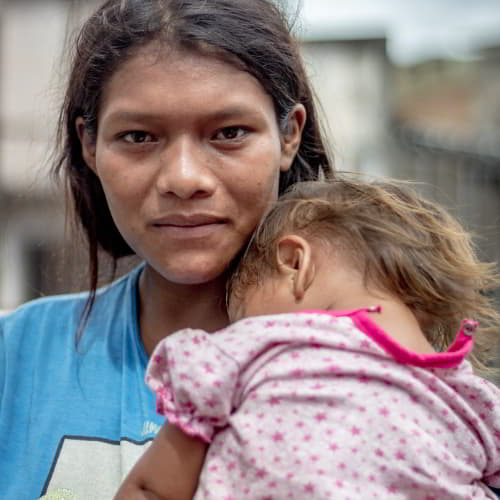The Spirit of Poverty: Freeing Hearts and Minds
It is easy to understand that poverty is physically defined by lack or need. Someone needs food but doesn’t have any. Someone needs medicine but cannot access it. Someone needs an education but has to work instead. These are things we intuitively understand about poverty. And yet, there is a side to poverty that is unseen, and if you have never experienced true poverty yourself, it may be hard to understand: the spirit of poverty.
Breaking the spirit of poverty begins with understanding what it is and how it infects every part of a person’s life. George Orwell’s first full-length published book was about his time in Paris and London when he had next to no money and was even a tramp for a while. The first thing he observed was that “when running dangerously short on cash, without money for food or rent, … poverty completely eradicates the future. In other words, one no longer cares about their career in five years’ time, their child’s future education, or any forward-thinking notions such as insurance. To survive the day and have some money for food … for tomorrow is as far as one can plan.”[1]
The signs of spirit of poverty include low self-esteem, hopelessness, depression, suicidal thoughts and more.[2] When someone is accustomed to having nothing all day, every day, they begin to think that they do not deserve anything, that there is something about them personally that makes them unqualified for a different kind of life.
In addition to the mental and emotional toll, poverty also impacts a person’s brain. In a study by the Joint Research Centre of the European Commission, researchers noted that when a person is in a constant state of stress from poverty, parts of their brain required for decision-making do not properly develop. Toxic stress (any prolonged unnatural stress) for a child “hijacks attention, drowns focus and impairs judgement.” And for parents, the same stress will affect their ability to be a sufficient caregiver.[3]
Not only are those in poverty struggling to physically survive, but their minds are fighting a battle on every front. This is the spirit of poverty: a pervasive cloud of hopelessness, stress, fatigue and fogginess. According to the World Bank, more than 700 million people (many of them children) are living in extreme poverty.[4] With these staggering statistics and heartbreaking realities, we need to ask, “What are some solutions to poverty?” one solution includes provision of income generating animals.
Click here, to read more about this article.
Click here, to read more blogs in Gospel for Asia.Net


Comments
Post a Comment